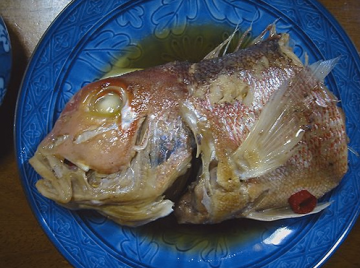Posts Tagged how to hook a reader
Three Ways to HOOK a Reader & Never Let GO
Posted by Author Kristen Lamb in Writing Tips on February 22, 2017

Image courtesy of Randy Heinitz via Flickr Creative Commons.
How do we sell our stories? That is the big question. It is the reason for craft classes and editing and cover design and agents and editors and all the time on social media. And while platforms and covers and algorithms do matter, there is one tried and true way to sell more books.
Write a great story.
And not just any story, but a story that hooks from the very beginning and only continues to hook deeper.
Think of great stories like concertina wire.
The danger of concertina wire is not just in one hook, but hundreds. And it isn’t even in the hundreds of hooks. It is the tension created by the coiled structure. If a person is snagged even a little, every effort to break free (turning a page for resolution) only traps the victim deeper in a web of barbed spines.
Now granted, this is a morbid visual, but y’all are writers and there is a good reason our family doesn’t like us talking at the dinner table.
So I was researching sucking chest wounds today and, hey, pass the spaghetti please?
Moving on…
We’ve talked about this before, but it bears repeating. Many new writers finish their first novel and I know as an editor that odds are I am going to chop off the first 50-100 pages. We dream killers editors call this the fish head. What do we do with fish heads? We toss them (unless you are my weird Scandinavian family who makes fish face soup out of them).

Image courtesy of David Pursehouse via Flickr Creative Commons
Often, when I go to do this kind of cutting, new writers will protest. “No, but you need this and the story really gets going on page 84.”
My answer? “Then let’s start on page 84.”
Too many stories fall flat because they lack the barbs necessary for snagging the modern reader who has the attention span of an ADD hamster with a meth habit. Additionally, a lot of us writers fall into bad habits of assuming readers are stupid, that they need all kinds of brain holding to “get” what we are talking about which means we not only lack barbs…but necessary tension.
I will prove readers are really smarter than we give them credit for 😉 …
Hooking with a Problem
One morning, on my way to take Spawn to school, as I stopped at my stop sign at a major business highway, a VW van passed at 50 mph and another car pulled out in front. BAM! Car parts, exploding glass, tearing metal, right in front of me. One driver screaming because his legs were crushed and he was pinned. All of this in less than 15 seconds.
Do you think I was hooked?
Did I need to know the history of the drivers, where they were going, what had the one driver so distracted that he would pull out into traffic? Did I need a description of the balmy, normal morning and a weather report? A description of the pale azure sky? Nope.
Now this is an extreme example, but it shows how even in life, we stop everything in light of a problem. A scream, a child crying, someone falling over a curb. We immediately halt everything.
Good fiction always begins with a problem because that is ALL fiction really is. Prose and descriptions and symbol and theme are all various delivery mechanisms…for PROBLEMS.
I cannot count the number of new manuscripts I read where the author spends most of her opening playing Literary Barbies. We really don’t care as much about your protagonist’s flaming red hair as much as we care about that warrant for her arrest. This is drama not a doll house.
Go look at books that have launched to legends and you will see this.
Andy Weir’s The Martian:
I am pretty much f**ked.
That is my considered opinion.
F**ked.
Six days into what should be the greatest two months of my life, and it has turned into a nightmare.
We don’t start the book on Earth or in the astronaut program at NASA. We don’t even start when they land on Mars and hint that trouble eventually will come. Nope. Weir tosses us face first into a problem.
Hooking With a Question

I have a mantra that all modern novelists must live and die by.
Resist the urge to explain.
One of the reasons emerging writers get that fish head is they do a lot of flashbacks and explaining and “setting up” the story and they are unwittingly destroying the single strongest propulsion mechanism for their story—curiosity.
If we look at the opening page of Harry Potter and The Sorcerer’s Stone, the opening paragraph has a small character hook but six lines down we read:
The Dursleys had everything they wanted, but they also had a secret, and their greatest fear was that somebody would discover it.
When we craft any story, we are wise to harness the power of human nature. Humans are curious. Heck, we are downright nosey. Imagine sitting at a Starbucks and prepping the computer to write. Two women sit nearby chatting and one has obviously been crying (hooking with a problem). We might eavesdrop a little, arrange Post Its, set out our lucky thesaurus but the second one of the women says, “He would kill me if he ever found out.”
There went the writing.
Then we would be doing “research” 😀 .
Hooking with Question and Character

What the HELL, HANNAH?
Sometimes the problem or question isn’t so obviously stated and there is a lot left between the lines. We humans love to fill in the blanks, so LET US.
We will use an example from my all-time favorite book Luckiest Girl Alive.
I inspected the knife in my hand.
“That’s the Shun. Feel how light it is compared to the Wustof?”
I pricked a finger on the blade’s witchy chin, testing. The handle was supposed to be moisture resistant, but was quickly going humid in my grip.
First of all, this is a great opening line. It hooks, but then it leads to another hook and another and another. The character is testing the blade. Why? A blade being moisture resistant obviously is a plus if you are planning on stabbing someone because less chance of slippage (Stuff Writers Know).
Who is she planning to stab? How is she planning on using the blade? What has her so nervous her hands are going moist?
And on PAGE ONE we realize the protagonist is out looking at knives with her fiancé. Why? That is unusual. China? Normal. Curtains? Normal. Knives? Not normal.
Especially since in paragraph FOUR, we read:
I look up at him, too: my fiancé. The word didn’t bother me so much as the one that came after it. Husband. That word laced the corset tighter, crushing organs, sending panic into my throat with the bright beat of a distress signal.
Don’t Eat Your Own Bait
There are any number of reasons we as writers are failing to gut hook with our stories and often it is because we are falling prey to the very bait that is going to trap a reader. Problems bother us (because we are human) so we feel a need to “lead up to” something bad. We don’t like questions. We want to know…which is why we feel the urge to explain.
Just know that that clawing feeling inside that is driving you to pad the text is a good sign you are probably doing something right 😉 . For more on how to hook the reader, I am once again holding my First Five Pages class with upgrades available to get me shredding through your pages to help you start strong and stay strong.
The tricks we use to hook on page one we should continue to use until the final page. Coil that barbed story all around and no escape until you’re cut free.
Ain’t no rest for the wicked 😉 .
What are your thoughts?
I LOVE hearing from you! And REMEMBER TO SIGN UP TO HANG OUT AND LEARN FROM HOLLYWOOD PRODUCER JOEL EISENBERG! Details are below. This is EIGHT hours with one of the hottest producers in Hollywood teaching everything from craft to how to SELL what we write! Recordings are included with your purchase for FREE!
And to prove it and show my love, for the month of FEBRUARY, everyone who leaves a comment I will put your name in a hat. If you comment and link back to my blog on your blog, you get your name in the hat twice. What do you win? The unvarnished truth from yours truly.
I will pick a winner once a month and it will be a critique of the first 20 pages of your novel, or your query letter, or your synopsis (5 pages or less).
SIGN UP NOW FOR UPCOMING CLASSES!!!
Remember that ALL CLASSES come with a FREE RECORDING so you can listen over and over. So even if you can’t make it in person? No excuses! All you need is an internet connection!
NEW CLASS!!!! Hollywood Producer Joel Eisenberg’s Master’s Series: HOW TO MAXIMIZE YOUR EARNING POTENTIAL AS A FULL-TIME AUTHOR (Includes all classes listed below) Normally $400 but at W.A.N.A. ONLY $199 to learn from Joel IN YOUR HOME.
OR, if it works better, purchase Joel’s classes individually…
Potentially Lucrative Multi-Media Rights $65 February 21st, 2107 (AVAILABLE ON DEMAND)
How to Sell to Your Niche Market $65 February 28th, 2017
It’s Not Who You Know, It’s Who Knows YOU $65 March 7th, 2017
Making Money Speaking, Teaching, Blogging and Retaining Rights $65 March 14th, 2017
Individual Classes with MOI!
Blogging for Authors $50 March 30th, 2017
Plotting for Dummies $35 February 17th, 2017
Pitch Perfect—How to Write a Query Letter and Synopsis that SELLS! $45 March 20th, 2017
NEW CLASS!!!! The Art of Character $35 February 24th, 2017
Hooking the Reader—Your First Five Pages $40 March 18th, 2017
For those who need help building a platform and keeping it SIMPLE, pick up a copy of my latest social media/branding book Rise of the Machines—Human Authors in a Digital World on
The Single Best Way to Sell Books (Or Lose a Sale)
Posted by Author Kristen Lamb in Writing Tips on April 25, 2014
We can blog, tweet, promo, purchase ads and wave pom poms over our book and that is all lovely. Attention is grand. An on-line platform is essential. But, if none of these efforts translate into an actual sale? A lot of time and money wasted. What is the best way to sell books?
We’ll get there in a sec… *suspenseful music cues*
In my latest book, Rise of the Machines–Human Authors in a Digital World I actually spend a lot of time explaining why advertising and marketing doesn’t sell books in the new paradigm (or any other, for that matter) and what changes to make for any advertising or marketing to be more effective. Yet, ads, banners, book trailers aside, people want to read a great book.
This means our best way of selling books is…
You ready for this? *drum roll*
Writing great books.
Our sample pages, which are the beginning of the book, are our most priceless selling tool. This is why I’ve dedicated just as many (if not more) blog posts to teaching craft than I have teaching social media. Social media is not magic and it will work far better with a great product (book). Whouda thunk?
I know most of you’ve heard agents and editors usually give a book one to three pages, before continuing or chunking into the circular file. You might be thinking one to three pages? But, my story really gets going on page 21.
No.
I’ve run the first-twenty-pages-contest on this blog for about four years. Most of the samples I get? I don’t need 20 pages. I need one. Maybe five. At the outset? TEN (but that’s rare). I already know all the writer’s good and bad habits as well as the writer’s level of education and skill (or lack thereof). It’s simply shocking how many of the same problems plague the beginning of most first-time novels.
And it’s easy to think this is all very unfair, but think of your own experiences browsing a bookstore. Aside from cover and interesting title and story description, what do we do? We open the book and scan the first couple of pages. If those first pages stink or are lackluster, we don’t give the writer twenty of fifty or a hundred pages to sell us.
Unless you wrote Girl With the Dragon Tattoo but he was dead.
So when you are dead, I suppose people give more gratis, because I cannot count the number of times people have said, “Well, yes GWTDT bored the paint off the walls, but after the first hundred pages, it’s awesome!”
I…am not that motivated. I gave the book more than it’s due (because the writer was dead) and gave it 20. Next! I’m aging here.
So if you are reading this blog and you’re dead? You get more leeway. Also, what’s it like on the Other Side? Feel free to leave a description in the comments :D.
For the rest of us who remain among the living? One to five pages.
I can tell 99% of what’s wrong in a book by page five, and so can agents and editors (and readers, though they might not know what is wrong, only they aren’t hooked).
It’s sort of like going to a doctor. He/She can tell from the sphygmomanometer (been DYING to use that word) which is a blood-pressure cuff, a look at skin pallor and basic symptoms to tell if a patient has a bum ticker. No need to crack open the patient’s chest and stare right at the sickly beating heart.
Most new writers (especially) have what Candy Haven’s calls a fish-head. What do we do with fish-heads? We cut them off and throw them away, unless you are my family, who are scavengers Scandinavians and then they make soup *shivers*. This actually explains the Girl with the Dragon Tattoo mystery.
The writer was dead and Swedish. Apparently Swedish readers looove fish-head-story-soup and somehow convinced others to give it a try. Not saying these are bad books, btw. Clearly, they have a huge fan base and rave reviews. I’m just I am not patient enough to get to the good stuff (and neither are a lot of other people).
Most new novels need to lose the first hundred pages. But that’s just something I’ve gleaned from experience. Yet, who cares about the first hundred if we can’t care about the first five? Often, the problems in the next 95 pages can be fixed by knowing what went sideways with the first five. Seriously.
Sample pages are…samples. If we go to Sam’s or Costco, how many will stop for a sample of egg rolls, pizza, or Acai juice? If the sample Green Juice Gut-Blaster tastes like steel wool mixed with moldy spinach, will you BUY the mega-bottle of Green Juice Gut-Blaster hoping it tastes better by mid-bottle?
My point, exactly.
For a fantastic resource about this, I highly recommend (AGAIN) Les Edgerton’s Hooked. Also, tonight is my First Five Pages Class to help you out (deets down the page), because we all know that the TOUGHEST part of writing a book is the BEGINNING….then the middle and WHOA—crap—the end. But, this class is for the first FIVE because if we can’t nab a reader there? The rest is moot.
What makes you stop reading a book? How long do you give books? Are you patient enough to wait a hundred pages for it to get interesting? What do you find the hardest about writing the beginning of the book? Have you lopped off your own fish heads?
I LOVE hearing from you!
To prove it and show my love, for the month of APRIL, everyone who leaves a comment I will put your name in a hat. If you comment and link back to my blog on your blog, you get your name in the hat twice. What do you win? The unvarnished truth from yours truly. I will pick a winner once a month and it will be a critique of the first 20 pages of your novel, or your query letter, or your synopsis (5 pages or less).
If you want more help with plot problems, antagonists, structure, beginnings, then I have TWO classes coming up to help you!
Upcoming Classes
BOTH CLASSES COME WITH HANDOUTS AND FREE RECORDING.
A seasoned editor can tell a lot about your book with only five pages. Learn to hook hard and hook early. TONIGHT!!! I am running the Your First Five Pages Class. Use WANA10 for $10 off. This is the perfect class for diagnosing bigger story issues or even getting a work agent-ready in time for conference season. This class is April 25th 6:00-8:30 PM NYC Time. Gold Level is available if you want me to critique your 5 pages.
Also, if you are struggling with plot or have a book that seems to be in the Never-Ending Hole of Chasing Your Tail or maybe you’d like to learn how to plot a series, I am also teaching my ever-popular Understanding the Antagonist Class on May 10th from NOON to 2:00 P.M. (A SATURDAY). This is a fabulous class for understanding all the different types of antagonists and how to use them to maintain and increase story tension. Remember, a story is only as strong as its problem 😉 . This is a GREAT class for streamlining a story and making it pitch-ready.
Again, use WANA10 for $10 off.










